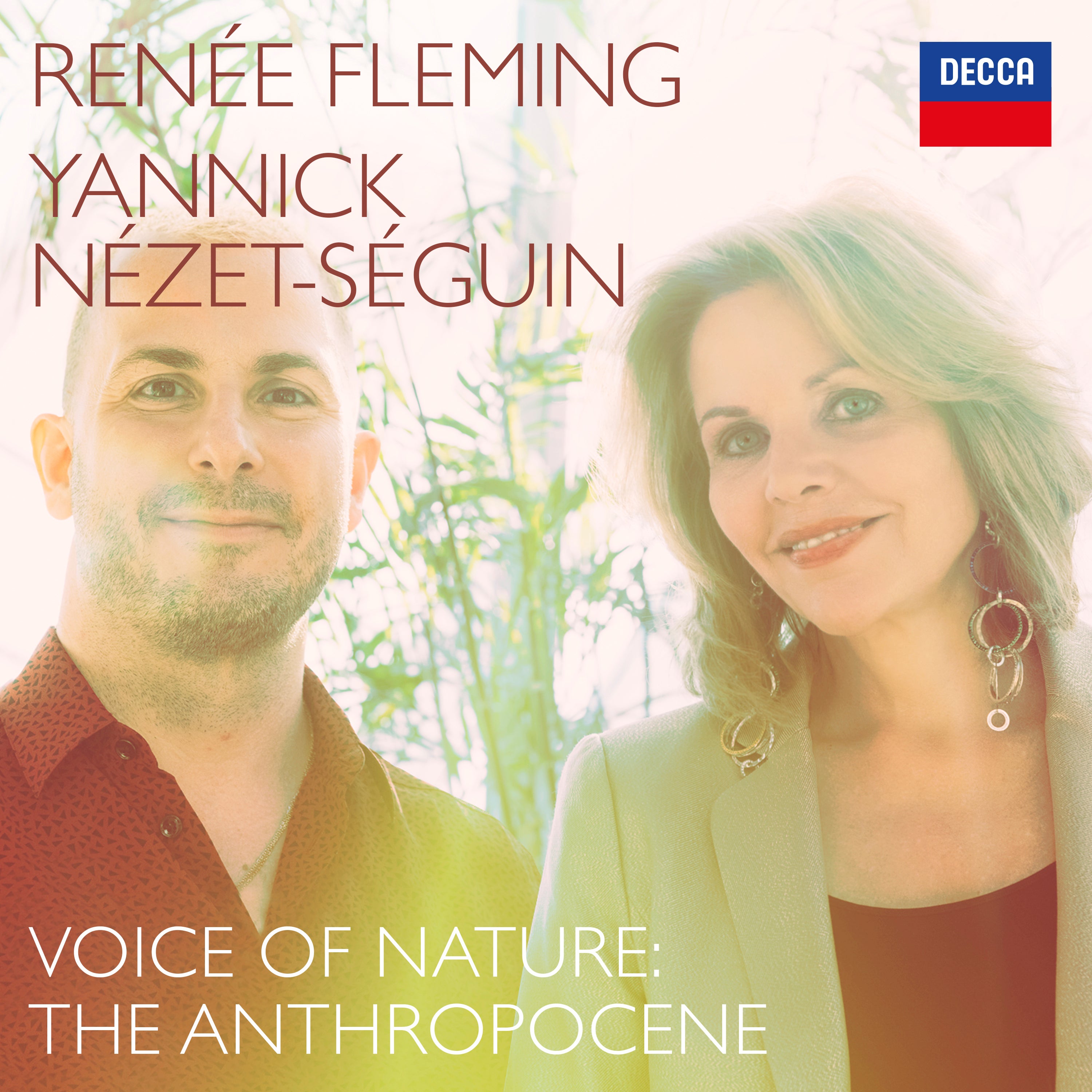Fleming, Nézet-Séguin release recording on climate change
Their travel and performances were limited during the pandemic

Your support helps us to tell the story
From reproductive rights to climate change to Big Tech, The Independent is on the ground when the story is developing. Whether it's investigating the financials of Elon Musk's pro-Trump PAC or producing our latest documentary, 'The A Word', which shines a light on the American women fighting for reproductive rights, we know how important it is to parse out the facts from the messaging.
At such a critical moment in US history, we need reporters on the ground. Your donation allows us to keep sending journalists to speak to both sides of the story.
The Independent is trusted by Americans across the entire political spectrum. And unlike many other quality news outlets, we choose not to lock Americans out of our reporting and analysis with paywalls. We believe quality journalism should be available to everyone, paid for by those who can afford it.
Your support makes all the difference.Their travel and performance limited during the pandemic, soprano Renée Fleming and Yannick Nézet-Séguin brainstormed on songs they could perform together at a piano and concluded on a theme of climate change.
“I’ve been thinking for years about how Romantic poetry and song literature framed every human experience,” she said, “and of course I was horrified the last year by Mother Nature making her unhappiness very loud and clear to us.”
Their collaboration resulted in “Voice of Nature — The Anthropocene ” released on Oct. 8 by Decca Classics. It features the premiere recordings of three contemporary works, Kevin Puts’ “Evening,” Nico Muhly’s “Endless Space” and Caroline Shaw’s “Aurora Borealis ” along with compositions by Gabriel Fauré, Edvard Grieg, Reynaldo Hahn and Franz Liszt that date to 1844.
Fleming did not perform in public from March 2020 until June 2021 because of the pandemic, staying at her home in Virginia. Nézet-Séguin largely was limited to performances near his home in Montreal until last July, when he led the Chamber Orchestra of Europe in a Beethoven symphony cycle in Baden-Baden, Germany.
They chose the repertoire largely by exchanging texts and voice mails. Their schedules usually leave no time to record together.
“Even if we’re not doing anything, we’re always doing something,” said Nézet-Séguin, the music director of New York’s Metropolitan Opera, the Philadelphia Orchestra and Montreal’s Orchestre Métropolitain.
“Slowing down like this," he went on, " I think it made all of us artists reflect on what’s important, what are the priorities and what time we need to reserve. For me, doing a project like this with an artist that I so much love and admire like Renee is something that I need more time to practice and I need more time to get into the pieces. And that is so good for my soul, and it’s something that has shown me that it’s important to keep those moments as an artist to do this. And also it’s significant to, hopefully, speak to the world because of the theme.”
Puts’ composition, with text from a Dorianne Laux poem, was composed just ahead of the recording sessions at Philadelphia’s Verizon Hall this past April 27 to May 1. The 49-year-old American had composed “The Brightness of Light,” an expanded song cycle that was premiered at Tanglewood in July 2019, based on his earlier “Letters from Georgia O’Keefe.”
While Fleming performed her last central repertory role in May 2017, she is taking on new works. And Puts is composing “The Hours,” based on Michael Cunningham’s Pulitzer Prize-winning novel, which is to premiere with Nézet-Séguin and Fleming at the Philadelphia Orchestra on March 18 in a concert version, then fully staged performances at the Met in 2022-23.
After Nézet-Séguin’s melancholy introduction of “Evening,” Fleming implores, “Midnight pours down without mercy no matter how many have perished beneath the trees,” concluding “We know the land is disappearing beneath the sea, islands swallowed like prehistoric fish/We know we are doomed, done for, damned and still the light reaches us, falls on our shoulders even now, even here where the moon is hidden from us, even though the stars are so far away.”
Fleming sang “Aurora Borealis” at Carnegie Hall in 2017, a work that describes “streaks in the sky... this is what I sought tonight.” She and Nézet-Séguin hope to perform some of these songs in concert at some point.
“For me, piano has taken a different importance now,” he said. “It’s not so much because I want to do solo recitals. It’s because I want to sit down and do projects like this with Renée. This is a dream for me, so I’ll make space.”
Nézet-Séguin’s piano has been limited mostly to rehearsals. He recorded Schubert’s “Winterreise” with mezzo-soprano Joyce DiDonato, which was released by Warner Classics last spring, and he hopes a public role at the keyboard will emerge.
“I just try to listen to what you’re doing and I try to do this legato the way you do it, so perfectly,” he said to Fleming. “I have evolved in the last year and a half with my relationship with the piano because it’s something that I wanted kind of always to keep as a secret. When I was a pianist and trained as a pianist, I was always looking at conducting as being my life. But I never abandoned the piano quite. And I was tempted to go back at it sometimes because I felt, well, who am I kidding? You never have time to practice. Why would I do this? But I do believe that it’s something that’s helping me becoming a better conductor now that I can play.”
Fleming hopes the message from these songs resonates.
“I’m proud of this project,” she explained. “I never say that about my recordings.”